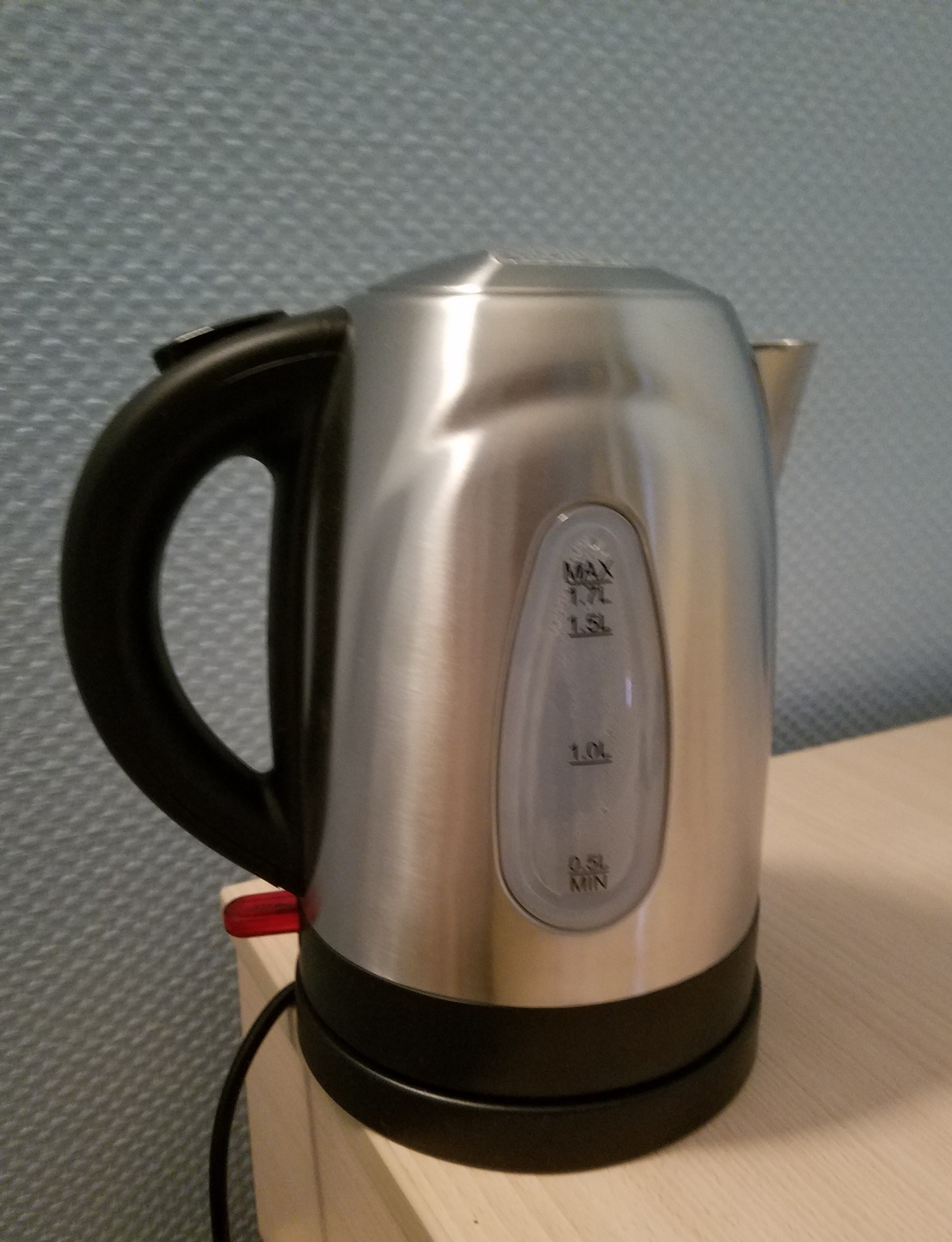-
New potatoes (that are small enough to cook in the toaster oven)
-
Olive oil
-
Cheese (I find that Cora’s 3 cheese blend is nice)
-
Tomato sauce
-
Canned corn
-
Chives
-
Optional: Add some crumbled up cold cuts! I had some leftover chicken that I sprinkled on top
-
Stab the potatoes with a fork and brush with olive oil
-
Wrap in foil, and let bake in the toaster oven for 45 minutes, or until soft
-
Take out the potatoes and cut a slit down the middle. Place cheese, tomato sauce, corn and meat inside.
-
Put the loaded potatoes back in the toaster oven and bake for another 5 minutes
-
Enjoy!

Reheating one of my baked potatoes I made earlier this week.
Having a kettle is a great way to boil water without a pan and stove. I like to make hard boiled eggs, pasta and rice. If you are making pasta or rice, use a thermal bag (sold at Cora), to make sure that the pasta and rice on the heating element don’t burn up.

-
Whole wheat tortillas
-
Mexican cheese blend
-
Onions
-
Green Peppers
-
Tomato
-
Salsa
-
Sour Cream
-
Chorizo (pre cooked, sold at Cora)
-
Rice
-
Preheat toaster oven to 425 degrees.
-
Thinly slice onions, green peppers, and the tomato.
-
Place a tortilla out flat, and on half of it, put a layer of cheese, peppers, onions and tomato. Sprinkle chorizo inside.
-
Fold tortilla in half and place it in the toaster oven for 8-10 minutes, or until cheese is melted.
-
Enjoy with rice (as pictured below), cooked in a tea kettle!

Caramel Popcorn
-
1/2 cup un-popped popcorn
-
½ cup packed brown sugar
-
¼ cup butter
-
2 tablespoons light corn syrup
-
¼ teaspoon kosher salt + more for sprinkling
-
½ teaspoon vanilla extract
-
¼ teaspoon baking soda
-
Pop ½ cup uncooked popcorn and place in a large brown paper bag (sold at Cora).
-
To make the caramel, throw the brown sugar, butter, corn syrup and kosher salt in a bowl and microwave for 1 minute. After one minute, take it out and stir it and then microwave it again for 1 minute or until boiling. Be careful not to burn it!
-
Add baking soda and vanilla to caramel and mix it up.
-
Pour the caramel over the popcorn and stir it up in the brown bag.
-
Roll down the top of the brown paper bag and place in the microwave. Cook on high for 1 minute. Remove from microwave, keeping the bag closed, and shake it vigorously. The microwave for another minute, and shake it up again.
-
Pour some salt in the bag to taste and shake it up.
-
Enjoy!



















